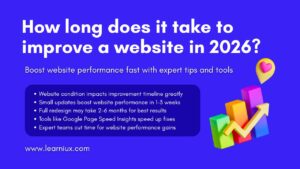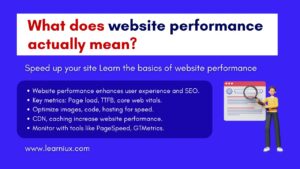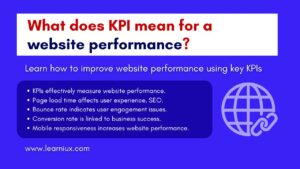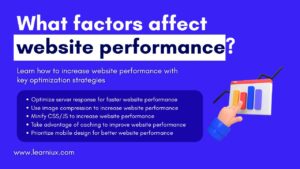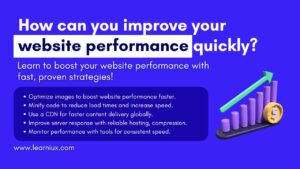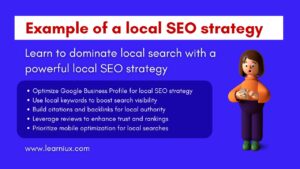Introduction
Local businesses rely on attracting customers from their local area to succeed. In an era where search engines shape consumer decisions, optimizing for local search has become essential for visibility. SEO analysis tools provide a robust solution, enabling businesses to track performance, identify opportunities, and stay ahead of the competition. These tools provide data-driven insights that boost local search rankings, drive more foot traffic, and increase online engagement. This article explores how SEO analysis tools support local SEO strategies, detailing their key features, practical applications, and steps for effective implementation.
With over 46% of Google searches looking for local information, businesses should prioritize appearing in results like the Google Maps pack. SEO analysis tools make this easy by analyzing keywords, citations, and reviews, helping businesses connect with customers nearby. From optimizing Google Business Profiles to targeting location-specific keywords, these tools automate complex tasks and provide actionable recommendations. Whether you’re a small retailer or a multi-location service provider, leveraging these tools strengthens your local presence and measurable results.
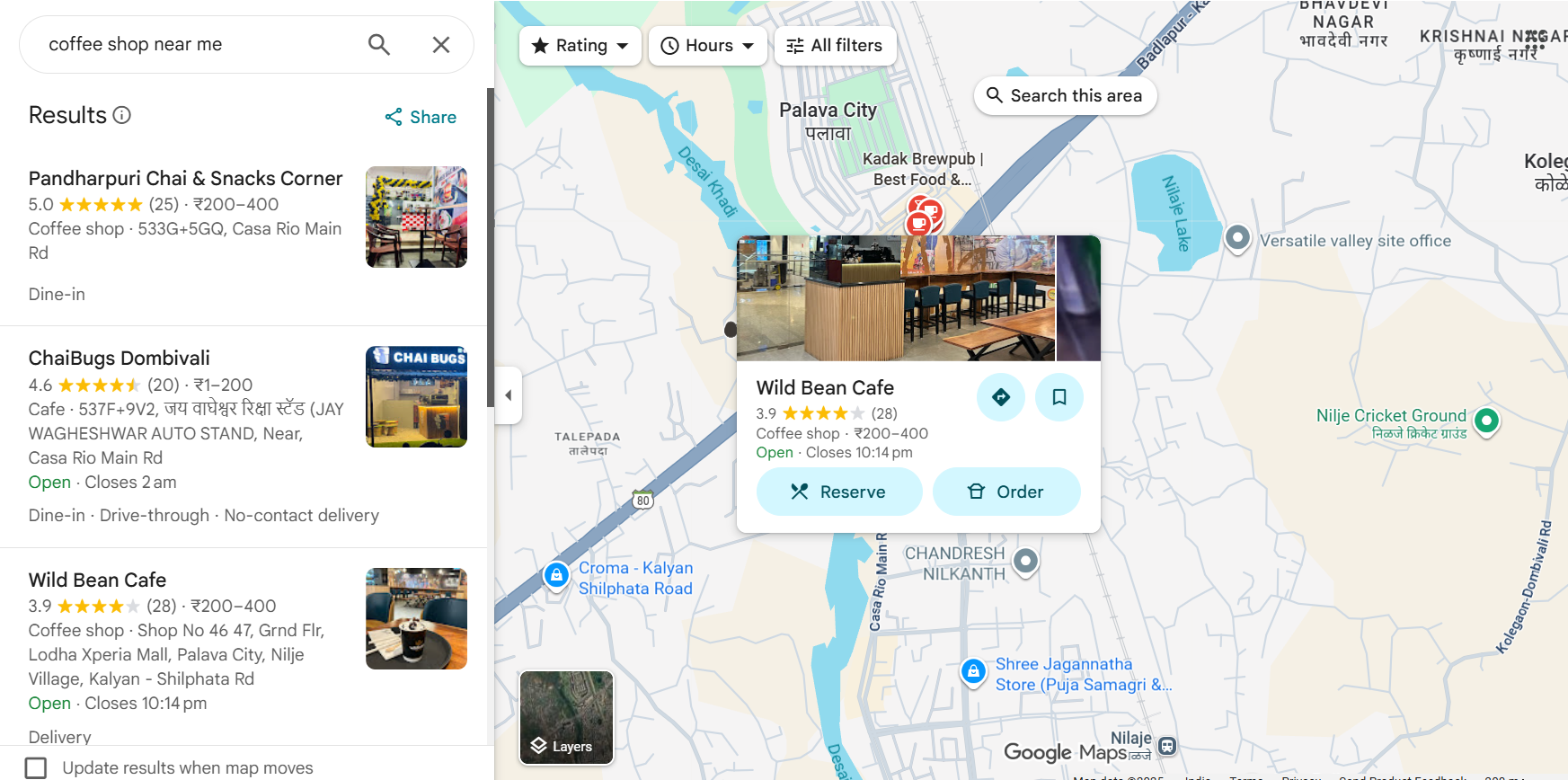
Understanding Local SEO and its Importance
Local SEO focuses on optimizing a business’s online presence to attract customers in a specific geographic area. Unlike traditional SEO, which targets a broad audience, local SEO prioritizes searches like “restaurants near me” or “plumbers in Mumbai.” With over 46% of Google searches being for local information, mastering this niche is essential for small businesses, retailers, and service providers.
The need for local optimization has been further enhanced by the rise of mobile and voice search. Consumers expect instant, location-specific results, and search engines like Google favor businesses with strong local signals, such as an optimized Google Business Profile and consistent citations. SEO analysis tools play a critical role by providing insight into these signals, helping businesses refine their strategies so that businesses rank high in local search results, including the coveted Google Maps pack.
What are SEO Analysis Tools
SEO analysis tools are software platforms designed to evaluate and improve a website’s search engine performance. They collect and analyze data on keywords, backlinks, site health, and user behavior, providing actionable recommendations to increase visibility. For local SEO, these tools extend their functionality to include location-specific metrics like local keyword rankings and citation consistency.
Popular tools like SEMrush, Ahrefs, Moz, and BrightLocal cater to both general and local SEO needs. They provide features like site audits, competitor analysis, and review monitoring, which are crucial for businesses targeting a local audience. By automating complex tasks, SEO analysis tools save time and allow businesses to focus on implementing high-impact changes.
Key Features of SEO Analysis Tools for Local SEO
SEO analysis tools offer specialized features that align with local SEO goals. These include:
- Local Rank Tracking: Monitors how a business ranks for location-specific keywords like “coffee shop in Pune” or “dentist near me.” Tools like BrightLocal and Local Falcon provide granular insight into rankings across different zip codes or neighborhoods.
- Citation Management: Ensures that business information NAP (name, address, phone number) is consistent across directories like Yelp, Yellow Pages, and Google Business Profile. Inconsistent citations can hurt local rankings, and tools like Moz Local can help identify and fix discrepancies.
- Review Monitoring: Tracks customer reviews on platforms like Google, Facebook, and TripAdvisor. Tools like SEMrush Local allow businesses to respond to feedback and analyze sentiment, which impacts local search rankings.
- Keyword Research for Local Terms: Identifies high-value, location-based keywords with low competition. For example, Growthbar and Localo suggest terms like “best bakery in Delhi” based on search volume and user intent.
- Competitor Analysis: Reveals competitors’ strategies, including their backlink profiles, content performance, and local SEO strategies. Ahrefs and SEMrush excel in this area, helping businesses identify gaps and opportunities.
- AI-Powered Insights: Advanced tools use artificial intelligence to predict trends and recommend optimizations. For example, Local Falcon’s AI-powered reports predict ranking changes based on local search patterns.
These features make SEO analysis tools indispensable for businesses aiming to dominate local search results.
Why Local SEO is Important for Businesses
Local SEO directly impacts a business’s ability to attract customers from nearby locations. For example, a restaurant in Bengaluru directly impacts a business’s ability to attract customers from nearby locations. When someone searches for “best biryani in Bengaluru,” they want to be seen. Without local optimization, they risk losing customers to competitors with stronger online profiles. Studies show that 76% of people who search for a local business on their phone visit the store within 24 hours, which underscores the urgency of effective local SEO.
SEO analysis tools bridge the gap between intent and action by providing data to optimize for these high-converting searches. They help businesses understand customer behavior, improve their online presence, and build trust through consistent branding and positive reviews.
The Role of Google Business Profile in Local SEO
The Google Business Profile (GBP) is the cornerstone of local SEO. It allows businesses to manage their online presence on Google, including search and maps. A well-optimized GBP includes accurate details, high-quality photos, and regular updates, which all signal relevance to search engines.
SEO analysis tools enhance GBP performance by tracking metrics like profile views, click-through rates, and customer actions (e.g. calls or website visits). Tools like Google Business Profile Insights and BrightLocal provide detailed reports, helping businesses identify areas for improvement, such as adding more photos or responding to reviews faster.
Benefits of Using SEO Analysis Tools for Local SEO
SEO analysis tools offer numerous benefits for local SEO, from uncovering hidden opportunities to simplifying repetitive tasks. Below are the key benefits, focusing on how they deliver measurable results.
Enhanced Keyword Research with SEO Analysis Tools
Keyword research is the foundation of any SEO strategy, and local SEO is no exception. SEO analysis tools simplify the process by identifying location-specific keywords that match user intent. For example, a tool like SEMrush can suggest terms like “yoga classes in Chennai” or “car repair near me,” complete with search volume and competition data.
These tools also analyze voice search queries, which are increasingly common in local searches. Phrases like “where can I find a pet store near me” tend to be longer and more conversational, and tools like Ahrefs help businesses target these effectively. By focusing on low-competition, high-intent keywords, businesses can attract more relevant traffic with less effort.
Competitor Analysis for Strategic Advantage
Understanding what your competitors are doing is crucial to staying ahead. SEO analysis tools provide insight into your competitors’ local SEO strategies, including their backlink profile, content performance, and citation sources. For example, Ahrefs can reveal which directories a competing bakery in Mumbai is listed on, allowing you to replicate or improve on their approach.
This competitive intelligence helps businesses identify niches or keywords that their competitors are not. For example, if a competitor is ranking well for “pizza delivery in Hyderabad” but not for “vegan pizza in Hyderabad,” you can target the latter to reach a specific audience.
Improved Citation Management
Citations [name, address, and phone number (NAP)] are a key ranking factor in local SEO. Inconsistent NAP details across directories can confuse search engines and hurt rankings. SEO analysis tools like Moz Local and BrightLocal scan the web for errors and suggest fixes, ensuring consistency across platforms like Google, Yelp, and local directories.
Some tools help you build new citations by submitting your business information to relevant directories, increasing visibility and credibility. This is especially useful for new businesses or those expanding into multiple locations.
Reputation Management and Review Tracking
Customer reviews have a significant impact on local rankings and customer trust. SEO analysis tools with review monitoring capabilities, such as SEMrush Local or BrightLocal, aggregate feedback from multiple platforms and provide sentiment analysis. This helps businesses respond quickly to negative reviews and highlight positive ones.
For example, a hotel in Goa can use these tools to track reviews on TripAdvisor and Google, addressing guest concerns to improve their reputation. Positive reviews also act as social proof, encouraging more customers to choose your business over competitors.
Technical SEO Optimization
Technical issues like slow website loading times or broken links can hurt local rankings. SEO analysis tools like Google Search Console and Screaming Frog perform site audits to identify and fix these issues. For local businesses, ensuring a mobile-friendly website is crucial, as the majority of local searches occur on smartphones.
The tools also check for schema markup, a type of structured data that helps search engines understand your business’s location and services. Adding local business schema can increase your chances of appearing in rich snippets like map results or knowledge panels.
Tracking and measuring success
SEO analysis tools provide detailed analytics to measure the success of local SEO efforts. Metrics like local keyword rankings, website traffic, and conversion rates give a clear picture of what’s working and what needs adjusting. For example, BrightLocal’s rank tracking feature shows how your business ranks for “florist in Kolkata” in different regions, helping you refine your strategy.
Regular monitoring ensures businesses stay agile, adapting to algorithm updates, or changes in customer behavior. This data-driven approach maximizes return on investment and aligns your strategy with your goals.
Top SEO Analysis Tools for Local SEO Strategies
Choosing the right tool depends on your budget, business size, and specific needs. Below is a list of the top SEO analysis tools for local SEO, based on their features and effectiveness:
- Google Business Profile: A free tool for managing local listings, with analytics to track profile performance. This is a must-have for any business that aims to appear in Google Maps or local search results.
- SEMrush Local: Offers robust features like review monitoring, citation management, and local keyword tracking. Ideal for businesses with multiple locations.
- BrightLocal: Specializes in local SEO with tools for citation building, rank tracking, and reputation management. Its user-friendly interface is ideal for small businesses.
- Moz Local: Focuses on citation consistency and duplicate content detection, making it perfect for businesses with complex listing issues.
- Ahrefs: While known for backlink analysis, it also supports local keyword research and competitor tracking, offering a comprehensive SEO solution.
- Local Falcon: Ideal for businesses targeting specific locales, it uses AI to provide hyper-local rank tracking and predictive insights.
- Localo: A new tool focused on automating GBP optimization and local keyword suggestions, with an emphasis on ease of use.
These tools can be used individually or together to build a strong local SEO strategy. For example, adding a Google Business Profile to BrightLocal provides both free analytics and advanced citation management.
How to Incorporate SEO analysis tools into Your Local SEO Plan
To maximize the benefits of SEO analysis tools, businesses need a structured approach. Below is a step-by-step guide to integrating these tools into your local SEO strategy.
Step 1 Conduct a comprehensive audit
Start by auditing your current local SEO performance. Use tools like Google Search Console or SEMrush to identify technical issues like slow page speed or missing meta tags. For a local-specific audit, BrightLocal can check citation consistency and GBP optimization.
The audit reveals quick wins like fixing broken links or updating outdated business information. It also sets a baseline to track progress.
Step 2 Optimize your Google Business Profile
A fully optimized GBP for local SEO is non-negotiable. Use insights from SEO analysis tools to ensure your profile includes:
- Accurate NAP details
- High-quality photos and videos
- Regular posts about offers or events
- Responding to customer reviews
Tools like Localo automate parts of this process, suggesting improvements based on competitor profiles or industry benchmarks.
Step 3 Target Local Keywords
Use SEO analysis tools to identify high-potential local keywords. For example, a gym in Ahmedabad might target “fitness classes in Ahmedabad” or “personal trainers near me.” Tools like Ahrefs or Growthbar provide data on search volume, competition, and related terms to refine your keyword list.
Include these keywords in your website content, GBP descriptions, and blog posts. Avoid keyword stuffing, as it can hurt user experience and rankings.
Step 4 Create and manage citations
Citations are important for local credibility. Use tools like Moz Local or BrightLocal to submit your business to relevant directories and ensure NAP consistency. Regularly check for duplicates or errors, as they can weaken your local authority.
For multi-location businesses, tools like SEMrush Local streamline citation management across all branches, saving time and reducing errors.
Step 5 Monitor Reviews and Engagement
Customer reviews are a powerful ranking factor. Use SEO analysis tools to track feedback on the platform and respond quickly. For example, BrightLocal’s review monitoring feature alerts you to new reviews, allowing you to address concerns before they escalate.
Encourage satisfied customers to leave reviews by including links to your GBP or Yelp profile in email campaigns or receipts.
Step 6 Track and Adjust Performance
Regularly review analytics from SEO analysis tools to measure progress. Key metrics include:
- Local keyword rankings
- Website traffic from local searches
- Click-through rates from GBP
- Conversion rates (e.g., calls, form submissions)
If rankings are dropping for a key term like “salon in Bengaluru,” use tools like Local Falcon to identify the cause, such as new competitors or algorithm changes, and adjust your strategy accordingly.
Common Challenges When Using SEO analysis tools
While SEO analysis tools are powerful, they can also present challenges. Below are common issues and solutions to help you navigate them more easily.
Data Overload
With so many metrics available, it’s easy to get overwhelmed. Focus on key performance indicators (KPIs) related to local SEO, such as local ranking, citation health, and review sentiment. Tools like BrightLocal allow you to customize your dashboard to display only the data that matters most.
Cost Considerations
Some tools like Ahrefs or SEMrush can be expensive for small businesses. Start with free options like Google Business Profile Insights or Google Search Console, and consider affordable tools like Localo for budget-friendly local SEO. Combining free and paid tools often provides a cost-effective solution.
Integration Issues
Not all tools integrate seamlessly with each other or with existing systems. For example, syncing data between BrightLocal and your CRM may require manual work. To remedy this, choose tools with API support or pre-built integrations, such as SEMrush’s compatibility with Google Analytics.
Stay up to date with updates
Search engine algorithms are constantly evolving, and tools need to adapt. Make sure your chosen SEO analysis tool receives regular updates to keep up with Google’s latest ranking factors. Most reputable tools, like Moz and Ahrefs, provide frequent updates and user guides to keep you informed.
Advanced Tips for Making the Most of SEO analysis tools
For businesses with experience in local SEO, advanced features can provide a competitive edge. Here are some expert tips:
- Leverage AI Insights: Tools like Local Falcon use AI to predict ranking changes based on local trends. For example, if searches for “vegan restaurants in Mumbai” increase, you can adjust your content to take advantage of the trend.
- Optimize for voice search: When voice assistants like Siri and Google Assistant are running local queries, use tools like SEMrush to target long-tail, conversational keywords like “where is the nearest car wash.”
- Use heatmaps for hyper-local targeting: Tools like Local Falcon provide heatmaps that show ranking performance in specific areas. This is ideal for businesses targeting dense urban markets like Delhi or Bengaluru.
- Automate reporting: Save time by setting up automated reports in tools like BrightLocal or SEMrush. Weekly or monthly reports give you insights without manual effort.
- Combine tools for deeper insights: Use multiple tools to cover all bases. For example, add Ahrefs for backlink analysis and Moz Local for citation management to create a comprehensive strategy.
Case Studies Real World Examples
To illustrate the impact of SEO analysis tools, consider these hypothetical scenarios based on common use cases:
Case Study 1 Small Retailer in Pune
A boutique in Pune was struggling to appear in local search results. Using BrightLocal, the owner audited their citations and found discrepancies across 10 directories. After fixing these and optimizing their GBP with high-quality photos, the boutique’s ranking improved from page two to the top three results for “clothing store in Pune.” In three months, foot traffic increased by 25%.
Case Study 2 Multi-Location Restaurant Chain
A restaurant chain with branches in Mumbai and Delhi used SEMrush Local to manage citations and monitor reviews across all locations. By responding quickly to feedback and targeting keywords like “family restaurant in Mumbai,” the chain increased its Map Pack visibility. This led to a 15% increase in online reservations in six months.
These examples show how SEO analysis tools deliver tangible results when strategically applied.
Future Trends in Local SEO and Analytics Tools
As local SEO evolves, so do the tools that support it. Emerging trends include:
- Increased focus on AI: Tools are incorporating AI to provide predictive analytics and automated optimization, making it easier to stay ahead of competitors.
- Voice search optimization: As voice search continues to grow, tools like Ahrefs are expanding their capabilities to analyze conversational queries.
- Hyper-local targeting: Tools like Local Falcon are introducing more granular tracking, allowing businesses to optimize for specific streets or neighborhoods.
- Integration with AR/VR: As augmented reality gains traction, future tools may integrate with AR platforms to enhance local search, such as virtual store tours.
Staying up to date with these trends ensures that your local SEO strategy remains cutting-edge.
Conclusion
SEO analysis tools are essential for creating effective local SEO strategies, providing critical data and automation to increase visibility. These tools simplify tasks like keyword research, citation management, and review monitoring, enabling businesses to efficiently connect with customers nearby. By identifying high-intent local keywords and ensuring consistent business listings, they help small shops and multi-location businesses rank higher in search results. This targeted approach drives more foot traffic and increases online engagement, making these tools a cornerstone of local success.
Implementing SEO analysis tools through a structured process (auditing your current setup, optimizing your Google Business Profile, and tracking performance) yields measurable results. They uncover gaps like inconsistent citations or unused keywords, and provide actionable insights to outperform competitors. For businesses aiming to dominate local markets, tools like SEMrush, BrightLocal, or Moz Local provide the precision needed to thrive. Start using these solutions today to strengthen your local presence and effectively grow your customer base.
FAQs
How do SEO analysis tools improve local SEO rankings?
SEO analysis tools boost local SEO rankings by providing data-driven insights into keyword performance, citation consistency, and competitor strategies. They track location-specific keywords like “Bakery in Mumbai” to identify high-opportunity terms. Tools like BrightLocal and Moz Local ensure that business information is consistent across directories, which is a key ranking factor. They also monitor customer reviews, which influence local search visibility. By analyzing competitors’ backlinks and content, these tools help businesses identify gaps to exploit. Regular audits uncover technical issues, such as slow website speed, that can hurt rankings. Additionally, AI-enabled features in tools like Local Falcon predict ranking trends, allowing for proactive adjustments. For example, optimizing a Google Business Profile based on tool insights can increase Map Pack visibility. Overall, these tools streamline efforts, help businesses rank higher, and attract more local customers.
Which SEO analysis tools are best for small businesses targeting local SEO?
Small businesses benefit from affordable and user-friendly SEO analysis tools like Google Business Profile, BrightLocal, and Localo. Google Business Profile is free, offers analytics to track profile performance and optimize listings. BrightLocal specializes in local SEO, offering citation management and rank tracking tailored to small budgets. Localo automates Google Business Profile optimization and suggests local keywords, making it ideal for beginners. Moz Local is another great option for managing citations and finding duplicates. These tools help small businesses compete with the big players by focusing on local signals like reviews and NAP consistency. For advanced needs, SEMrush Local offers robust features but can be expensive. Combining free and paid tools ensures cost-effective results. By taking advantage of this, small businesses can efficiently grow their local presence.
Can SEO analysis tools help manage online reviews?
Yes, SEO analysis tools are extremely effective at managing online reviews, a key aspect of local SEO. Tools like SEMrush Local and BrightLocal aggregate reviews from platforms like Google, Yelp, and Facebook, providing a centralized dashboard. They offer sentiment analysis to assess customer feedback and alert businesses to new reviews to respond quickly. Responding to reviews, especially negative ones, builds trust and improves rankings. These tools also track the volume and ratings of reviews, which impact local search visibility. For example, a restaurant in Delhi can use BrightLocal to monitor TripAdvisor reviews and quickly address concerns. Some tools suggest ways to promote positive reviews, such as email campaign templates. By streamlining review management, these tools help businesses maintain a strong reputation. This, in turn, attracts more local customers and increases credibility.
How do SEO analysis tools help with local keyword research?
SEO analysis tools make local keyword research easier by identifying location-specific terms with high search intent. Tools like SEMrush and Ahrefs suggest keywords like “dentist in Pune” or “coffee shop near me” based on search volume and competition. They analyze voice search queries like “where is the nearest gym” that are common in local searches. These tools also provide related terms to broaden your keyword strategy. For example, Growthbar can reveal low-competition phrases like “organic cafe in Bangalore.” By focusing on these, businesses can drive relevant traffic with less effort. These tools track keyword performance over time, showing which terms are driving results. This data helps optimize website content and Google Business Profile descriptions. Ultimately, these tools ensure that businesses are targeting keywords that resonate with their local audience, increasing visibility and conversions.
Are SEO analysis tools effective for multi-location businesses?
SEO analysis tools are extremely effective for multi-location businesses, simplifying complex local SEO tasks. Tools like SEMrush Local and BrightLocal manage citations across multiple branches, ensuring NAP consistency for each location. They track rankings for location-specific keywords like “pizza in Chennai” or “pizza in Hyderabad” across different regions. Review monitoring features allow businesses to handle reviews for all locations from a single platform. For example, a retail chain can use Moz Local to fix inconsistent listings in directories. These tools also provide competitor insights, helping to identify strategies that work in specific markets. AI-powered tools like Local Falcon offer hyper-local rank tracking for precise targeting. By automating these processes, the tools save time and reduce errors. This ensures that multi-location businesses maintain a strong, cohesive local presence across all markets.
How do SEO analysis tools for local SEO help with competitor analysis?
SEO analysis tools provide deep insights into competitors’ local SEO strategies, giving businesses a competitive edge. Tools like Ahrefs and SEMrush analyze competitors’ backlink profiles, uncovering high-value linking opportunities. They also track competitors’ local keyword rankings, showing which terms are driving their traffic. For example, a salon in Kolkata can find competitor success with “haircut near me” and target similar keywords. Citation analysis identifies directories where competitors are listed, allowing businesses to replicate or expand upon them. Review monitoring reveals competitor customer sentiment, highlighting areas for differentiation. Tools like BrightLocal provide detailed reports on competitors’ Google Business Profile performance. These insights help businesses identify gaps, such as underused keywords or underserved areas. By acting on this data, businesses can refine their strategies and outperform local competitors.
Can Free SEO analysis tools Be Enough for Local SEO?
Free SEO analysis tools like Google Business Profile and Google Search Console can be enough for basic local SEO needs. Google Business Profile provides analytics on profile views, clicks, and customer actions, helping you optimize your listing. Google Search Console identifies technical issues, such as mobile usability errors, that impact local rankings. These tools provide insights into local search performance at no cost, which is ideal for small businesses. However, they lack advanced features like citation management or competitor analysis offered by paid tools like BrightLocal. Combining free tools with affordable options like Localo can increase effectiveness without breaking the bank. For businesses with limited resources, starting with free tools is a practical approach. As your needs grow, integrating paid tools can provide deeper insights. This hybrid strategy ensures cost-effective local SEO success for small businesses.
How do SEO analysis tools support Google Business Profile optimization?
SEO analysis tools significantly enhance Google Business Profile (GBP) optimization, which is a key local SEO factor. Tools like Localo and BrightLocal analyze GBP performance, suggesting improvements like adding high-quality photos or updating business hours. They track metrics like profile views, clicks, and call volume, showing how customers are interacting with your listing. These insights help prioritize actions like posting regular updates or responding to reviews. For example, a cafe in Mumbai can use SEMrush Local to monitor review trends and increase engagement. The tools also ensure NAP consistency, a critical ranking factor. Some provide competitor benchmarks, which show how your GBP compares to others in your area. By automating optimization tasks, these tools save time and improve map pack visibility. This leads to increased local search rankings and increased customer visits.
What challenges might businesses face when using SEO analysis tools for local SEO?
Businesses using SEO analysis tools for local SEO may face challenges such as data overload, cost, and integration issues. The wealth of metrics available from tools like SEMrush can be overwhelming for users, making it difficult to focus on key insights. To address this, prioritize KPIs like local rankings and citation health. The high cost of tools like Ahrefs can strain the budget of small businesses, but free options like Google Business Profile can complement paid tools. Integration with existing systems like CRM can require manual effort, although tools with APIs like SEMrush can help. Keeping up with algorithm changes is another challenge, but reputable tools provide regular updates. The learning curve for complex tools can be slow to adopt, so it’s a good idea to start with user-friendly options like Localo. By strategically addressing these challenges, businesses can maximize the tools’ benefits for local SEO success.
How do SEO analysis tools help with mobile and voice search optimization?
SEO analysis tools are crucial for local SEO optimization for mobile and voice search, which dominate local queries. Tools like Ahrefs and SEMrush identify long-tail, conversational keywords like “where is the nearest pet store” that are used in voice searches. They analyze mobile usability, ensuring that websites load quickly and display properly on smartphones. For example, Google Search Console flags mobile-friendly issues that can hurt rankings. These tools also track local keyword performance on mobile devices, which helps businesses target high-intent searches. AI features in tools like Local Falcon predict voice search trends, allowing for proactive content adjustments. By optimizing Google Business Profiles for mobile users, the tools increase Map Pack visibility. This ensures businesses capture the growing number of mobile and voice search users. Ultimately, these tools drive more local traffic and conversions in a mobile-first world.























